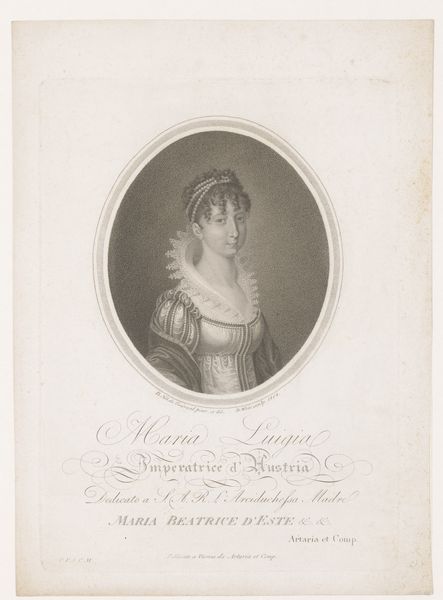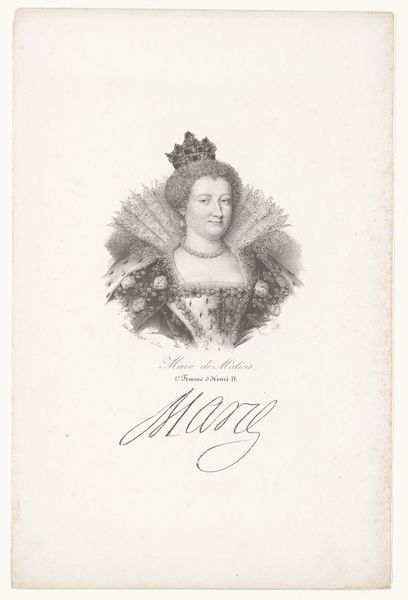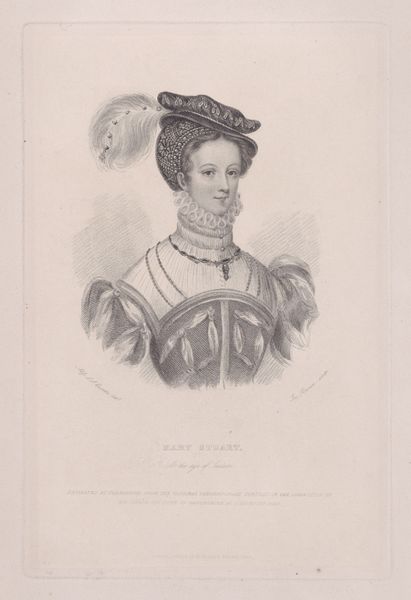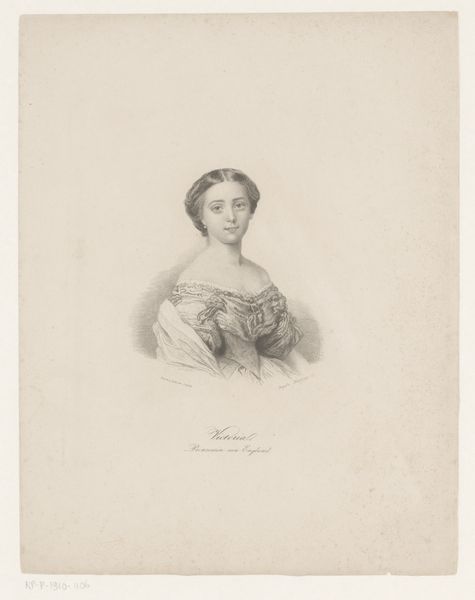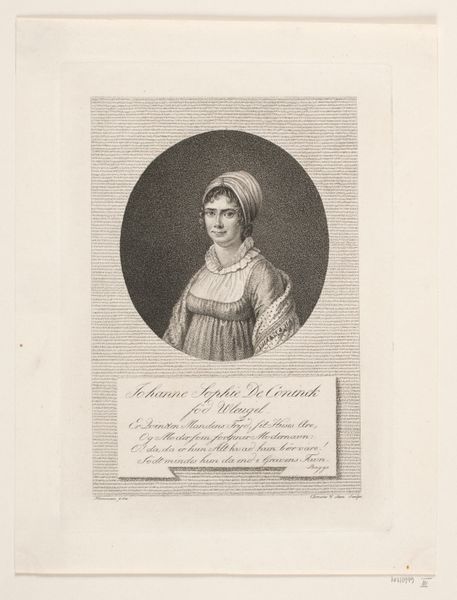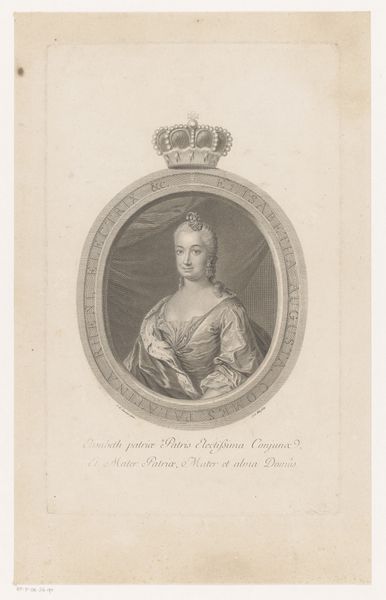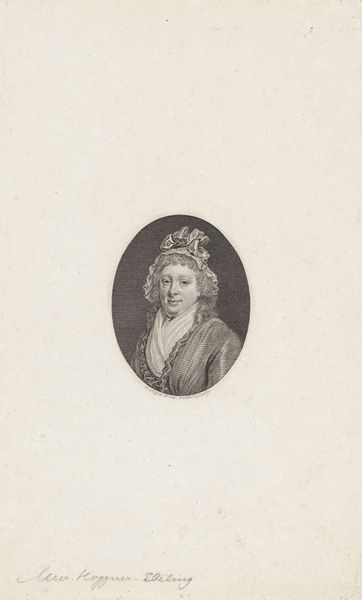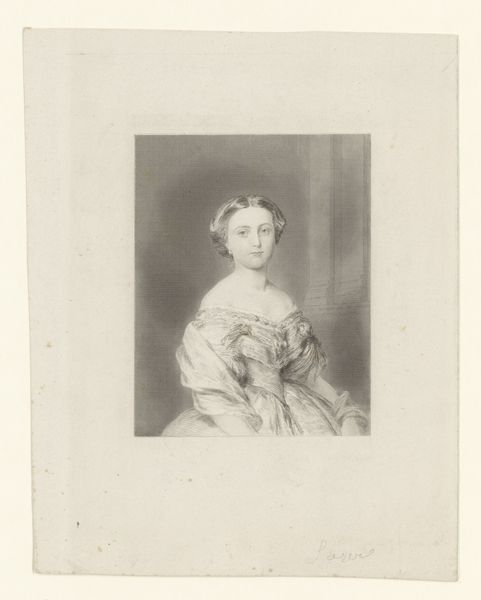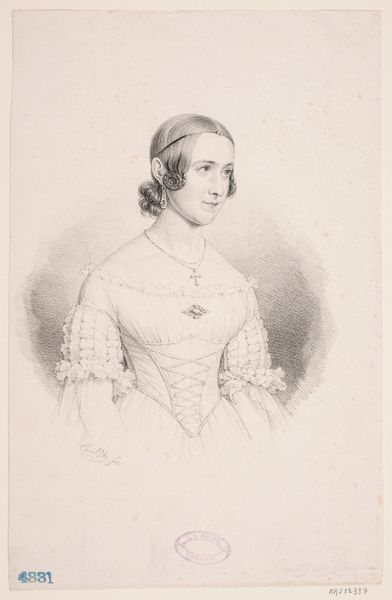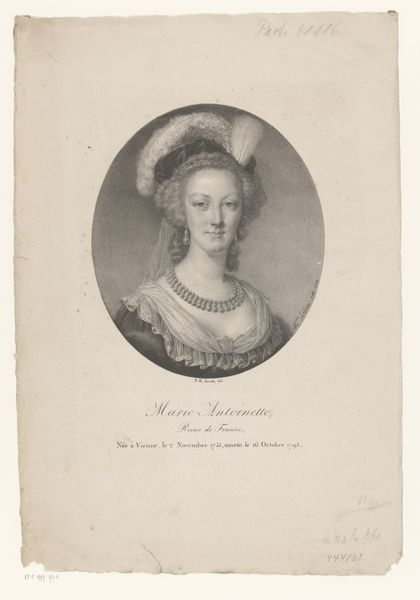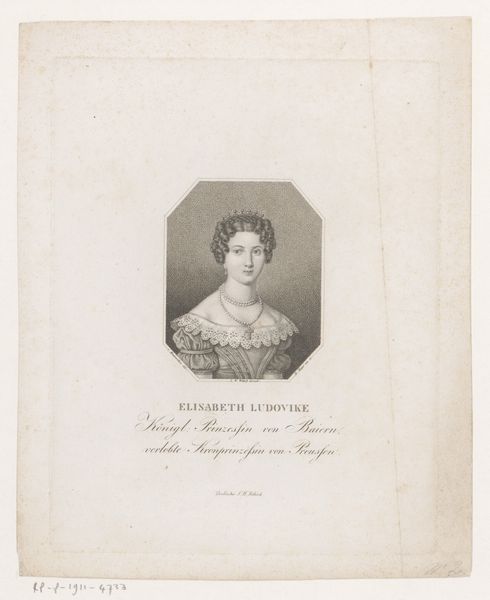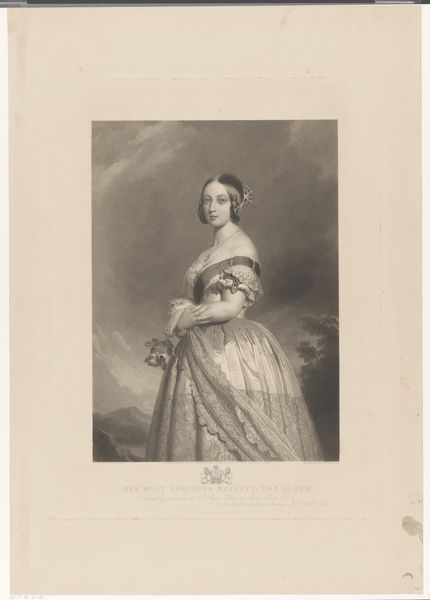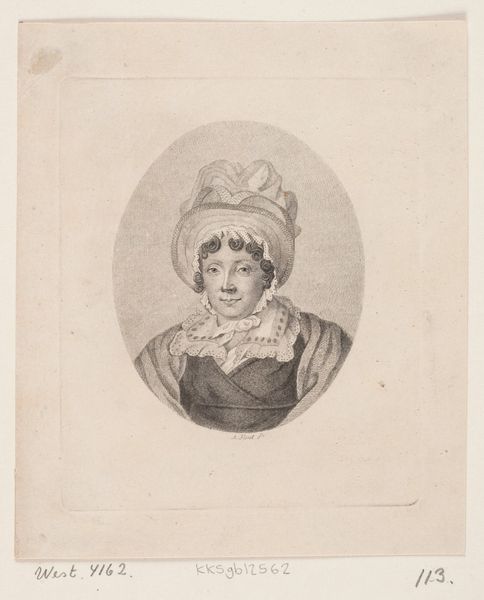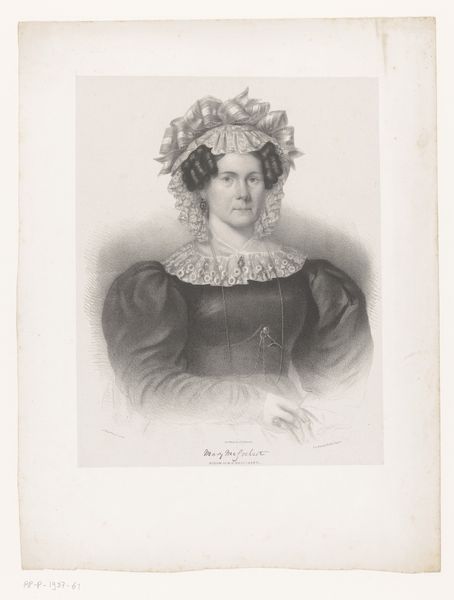
drawing, print, etching, engraving
#
portrait
#
drawing
#
neoclacissism
# print
#
etching
#
personal sketchbook
#
19th century
#
history-painting
#
engraving
Dimensions: Plate: 7 3/8 × 5 7/8 in. (18.7 × 15 cm) Sheet: 11 1/4 × 7 7/8 in. (28.5 × 20 cm)
Copyright: Public Domain
This print of Mary, Queen of Scots, was made by Joseph Singleton sometime between 1700 and 1850. The work exemplifies the technique of stipple engraving, which renders tone through tiny dots rather than lines. If you look closely, you'll notice that the artist has used this method to create subtle gradations of light and shadow across Mary's face and clothing. This gives the image a soft, almost painterly quality, despite being made through the decidedly unpainterly medium of printmaking. The process of creating a stipple engraving is painstaking, requiring great skill and patience to build up the image dot by dot. Singleton’s artistry reflects a wider world of labor and production, where such skills were highly valued and sought after, revealing the intersection of craft, design, and materiality. So, next time you see a print, take a moment to appreciate the labor and skill that went into its creation, and consider how the materials and processes used have shaped its appearance and meaning.
Comments
No comments
Be the first to comment and join the conversation on the ultimate creative platform.
